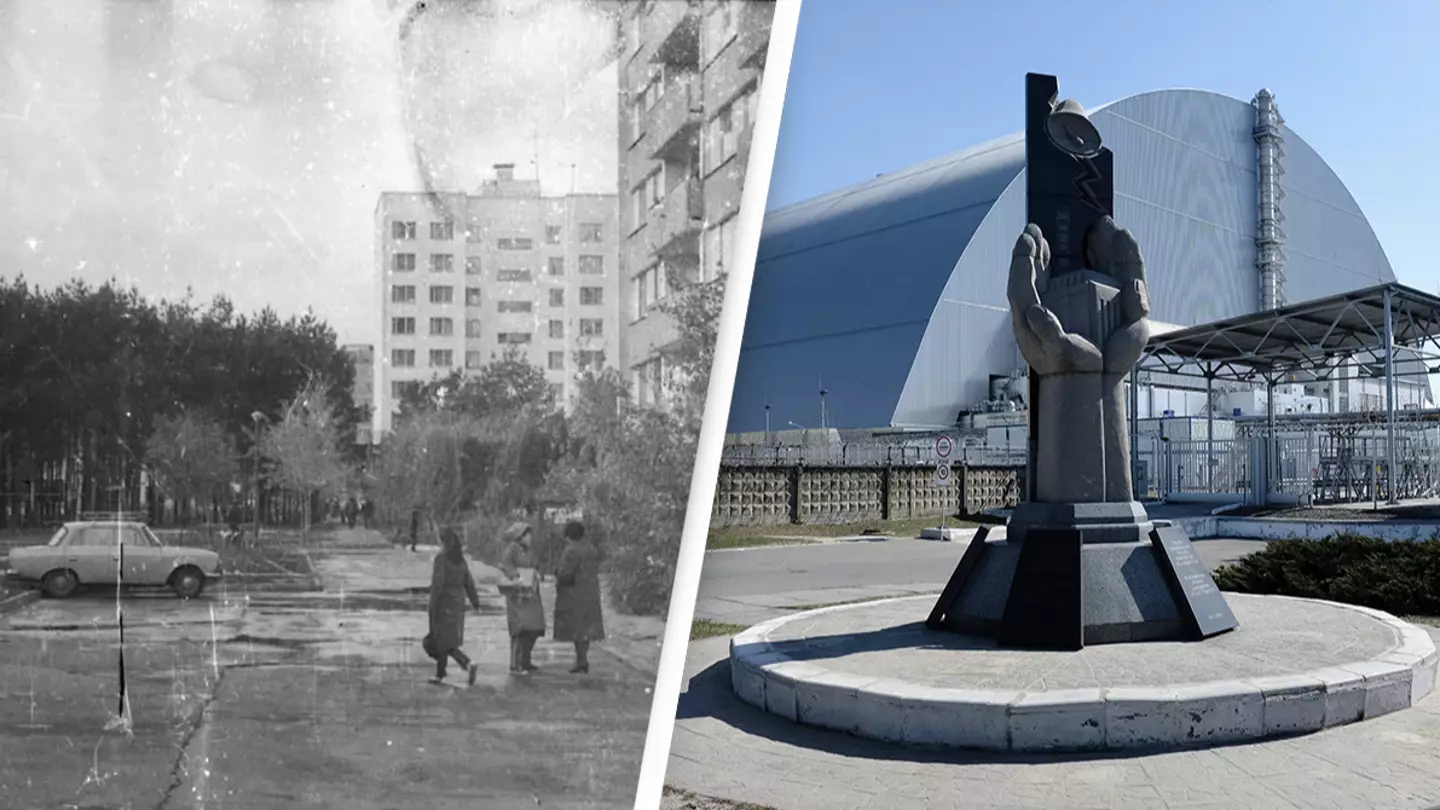
A Ukrainian photojournalist has recovered film negatives from Chernobyl before the nuclear disaster.
On 26 April, 1986, reactor four at Chernobyl Nuclear Power Plant, in Pripyat, Ukraine, exploded after a huge power surge. This led to radioactive fallout on scale hitherto undreamt of – it is the worst accident in the history of nuclear power.
While the official Soviet death toll stands at 56, Greenpeace estimated that anywhere between 93,000 and 200,000 people have died because of the events at Chernobyl.
Chernobyl has come up in headlines again recently, specifically regarding Vladimir Putin's Russian invasion of Ukraine and troops taking control of the plant, sparking fears over the spread of radiation and concerns over the wellbeing of its staff.
Advert
Maxim Dondyuk, a photographer from Ukraine, has managed to recover 15,000 artefacts from villages in the Chernobyl Exclusion Zone, including letters, photographs and film negatives.
For his 'Untitled Project from Chernobyl' series, he's restored and scanned the film, showing the area to be 'frozen in time' after more than 100,000 locals packed their bags and escaped.
Speaking to CNN, he said: "I was amazed at how the Soviet government evacuated these people, promising them that they would return in a few days, and not allowing people to take with them such priceless things as letters, [or] photos of relatives [and] friends.
Advert
"They didn't realise... that they would never be back to their homes where they were born, or where they lived their whole lives."
For Chernobyl, the scope of the Chernobyl disaster affected his own family. "It was the very first time I heard about Chernobyl accident, that probably, according to my parents and doctors, was the cause of my brother's illness. It left an unforgettable imprint in the life of my family," he said.
Alongside his wife and studio manager, Dondyuk returned to the Exclusion Zone over the course of five years. "I didn't expect to find such a huge archive. In the beginning, I thought there would be several photos and maybe some postcards," he continued.
The archives are regularly uploaded to Instagram, and Dondyuk has exhibited his project at festivals across the world. Amid Putin's invasion of Ukraine and the warfare battering the country, he's been photographing Kyiv.
Advert
He said: "I was able to finish the restoration step, and then the war started. So for now all the found [photographs] are restored and [organised] in folders and are waiting to be scanned. I'll be able to do [that] only after the war ends.
"It is extremely important for me to find and preserve the surviving remnants of history of this region while we still have something to save."
If you would like to donate to the Red Cross Emergency Appeal, which will help provide food, medicines and basic medical supplies, shelter and water to those in Ukraine, click here for more information
Topics: Russia, Ukraine, World News